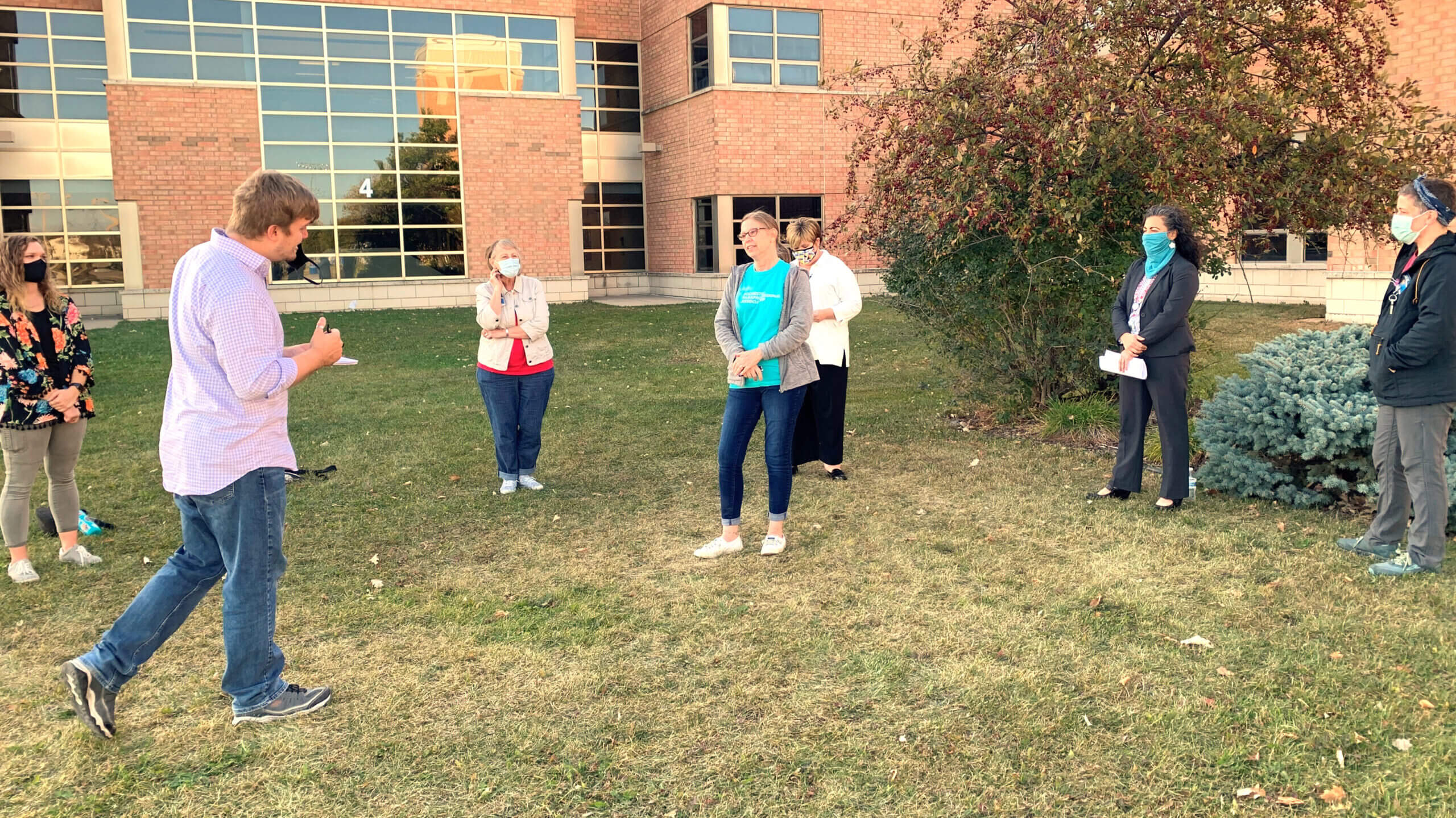The Education Minnesota officers have been visiting local unions and intermediate organizations through the fall, hearing members tell stories in every part of the state about how their work this year feels unsustainable.

COVID-19 didn’t create these issues and others facing Minnesota educators, but it did shine a brighter light on them. Education Minnesota leaders are now using the union’s collective power and voice to draw attention to these issues through a media series called “At a Breaking Point: Educating During COVID-19.”
The first media event in the series took place in Rochester Oct. 19, where the issue of education support professional staffing was highlighted.
At the time, Rochester had more than 80 open paraprofessional positions.
“This doesn’t mean that our students are not getting the high-quality education and services they deserve,” said Shannon Barrett, president of the Rochester Paraprofessional Association. “It means our teachers and our paras are working extremely hard to cover and catch up on paperwork after school. It means paras are covering positions they were not hired or trained to do and this is unsustainable.”
“Even before the COVID-19 pandemic, education support professionals weren’t given the respect or pay they deserve,” said Education Minnesota President Denise Specht. “Now, districts in Minnesota have $13 billion in federal funding to help pay our educators a full-time, living wage so we can attract and retain people who want to do this work and care about our students.”
Rochester received almost $16 million in Elementary and Secondary School Emergency Relief (ESSER) from the American Rescue Plan bill passed in March.
After the media event, Rochester Public Schools began offering $1,500 signing bonuses for paraprofessionals.
More media events are planned to highlight the substitute shortage and how that impacts other educators having to cover classes, as well as special education teacher workload concerns.
These issues will also be at the center of Education Minnesota’s legislative activity when the Legislature reconvenes Jan. 31.
At a breaking point
The Education Minnesota officers and executive director have visited with 71 locals throughout the state this fall, with plans for more meetings throughout the rest of the year.
At each meeting, they are hearing stories of staffing shortages in every area of education, staff mental health concerns, physical health concerns related to the ongoing COVID-19 pandemic, and more.
Your union wants to know we hear you. Beyond the media tour, Education Minnesota staff are working with local unions to bargain and support their members. From COVID bonuses to forgoing staff meetings, there are success stories we will continue to highlight, as well as bring these issues forward to the public, district administration, the Legislature and the governor.


